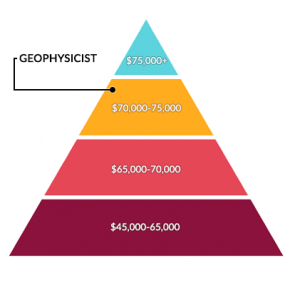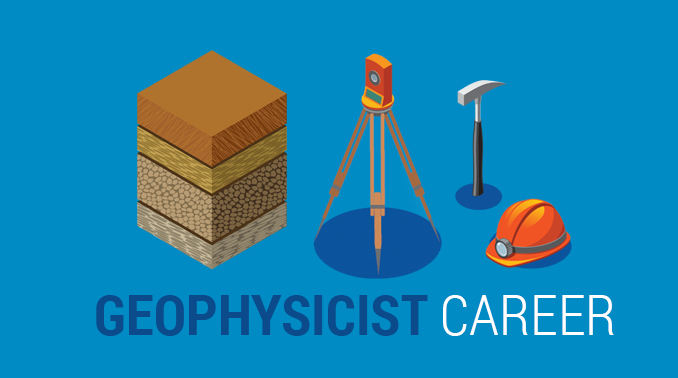All Categories
Featured
Table of Contents
Geophysical Surveying in Morley Aus 2022

Other possible geophysicist majors that aren't geophysics or geoscience consist of: Climatic sciences and meteorology Chemical and physical oceanography Earth science Environmental science Hydrology and water resources science Materials science By earning any geophysicist degree, and by taking the essential geology courses, you should get approved for an entry-level position as a geoscientist or geophysicist.
Eventually, students should find out: a branch of geology that takes a look at the different elements of minerals, consisting of chemical structure, internal crystal structure, and physical residential or commercial properties. the study of rocks and the procedures and conditions that form and change them with time. There are a few neighborhoods in this branch of geology, including igneous, metamorphic, and sedimentary rocks.

This field examines structural rock features such as cleavage, faults, joints, and small folds. They should likewise learn the computer system abilities needed to: examine information produce digital models and maps run geoscientists' software Students must likewise benefit from all chances to acquire real-world experience. Ambitious geophysicists ought to anticipate to hang out knowing: in the classroom in the field in laboratories Certainly, skills taught in the classroom are really important for aiming geophysicists.
What Does A Geoscientist Do? in Millendon WA 2021
Geoscientists spend a lot of their time outside when working in the field, so they need to possess "outdoor skills" like outdoor camping and operating boats, aircraft, and other lorries. Since they spend a lot time in remote locations, it's necessary that geophysicists also have the physical endurance to carry essential devices on their walkings to areas of research study.
The task provides: a high median and leading earnings a high rate of personal fulfillment amongst geophysicists low work tension positive task outlook More details on incomes potential and task outlook is detailed listed below. For trainees seeking to land an entry-level function as a geoscientist or geophysicist, it takes four years, or the time needed to complete a bachelor's degree in geophysics or an associated discipline.
Some research positions in geophysics require postgraduate degrees. If you prepare to teach at a college or university, you need to earn a Ph. D. in geophysics or an associated field. The time it takes to earn a Ph. D. differs by organization and program, however it usually takes 4 to 6 years beyond the bachelor's degree.
Course: Basics In Geophysical Surveying in Gooseberry Hill WA 2022
A lot of employers need prospects to have a bachelor's degree in geophysics or a closely associated discipline for all entry-level positions. As a result, there's no way around the degree requirements for becoming a geophysicist.
Currently, 31 states require licensing for geologists, although licensing is not always needed, particularly for entry-level work. The states that do problem licenses utilize the Basics of Geology Examination (FGE), which is administered through the National Association of State Boards of Geology (ASBOG). Now that you know which degree for geophysicist jobs you require, you'll require to land a job, and it is essential to find out just how much cash you can make in this career.
According to BLS, the average annual wage for geoscientists is $93,580. According to BLS, certain industries offer higher earnings for geoscientists, and in some cases, they offer higher-than-average profits.
Course: Basics In Geophysical Surveying in Sinagra Western Australia 2022
In fact, mining, quarrying, and oil and gas extraction provides over $32,000 more annually than the typical annual wage for this profession. The federal government, too, provides over $10,000 more in profits than the nationwide average for geoscientists. In addition to market type, geographical location can significantly impact earnings for this occupation.

The top-paying states and their annual mean earnings, according to the BLS, consist of: Texas $166,720 Oklahoma $149,630 Pennsylvania $120,590 Hawaii $120,130 Colorado $107,260 These 5 top-paying states use much higher salaries than the average for this occupation. Salaries for geoscientists in Texas are over $73,000 greater than the national average.
It should come as no surprise that the majority of these high-paying locations remain in Texas and Oklahoma, however some are discovered in California, Louisiana, and Colorado. The leading 10 highest-paying city locations for geoscientists are: Houston-The Woodlands-Sugar Land, Texas: $188,400 Tulsa, Oklahoma: $186,490 Midland, Texas: $167,040 Odessa, Texas: $147,080 Oklahoma City, Oklahoma: $145,350 Bakersfield, California: $130,080 Urban Honolulu, Hawaii: $124,470 New Orleans-Metairie, Louisiana: $121,030 Washington-Arlington-Alexandria, DC, VA, MD, WV: $120,180 Denver-Aurora-Lakewood, Colorado: $116,910 For some geoscientists and geophysicists, living in a metro city is not as attractive as residing in a smaller neighborhood.
Table of Contents
Latest Posts
Geophysical And Geotechnical Assessment in Mount Hawthorn Western Australia 2020
Geophysicist Bob Embley: Ocean Exploration Careers in Alexander Heights Oz 2022
Geophysical Surveys: Definition & Methods in Woodlands Western Australia 2021
More
Latest Posts
Geophysical And Geotechnical Assessment in Mount Hawthorn Western Australia 2020
Geophysicist Bob Embley: Ocean Exploration Careers in Alexander Heights Oz 2022
Geophysical Surveys: Definition & Methods in Woodlands Western Australia 2021